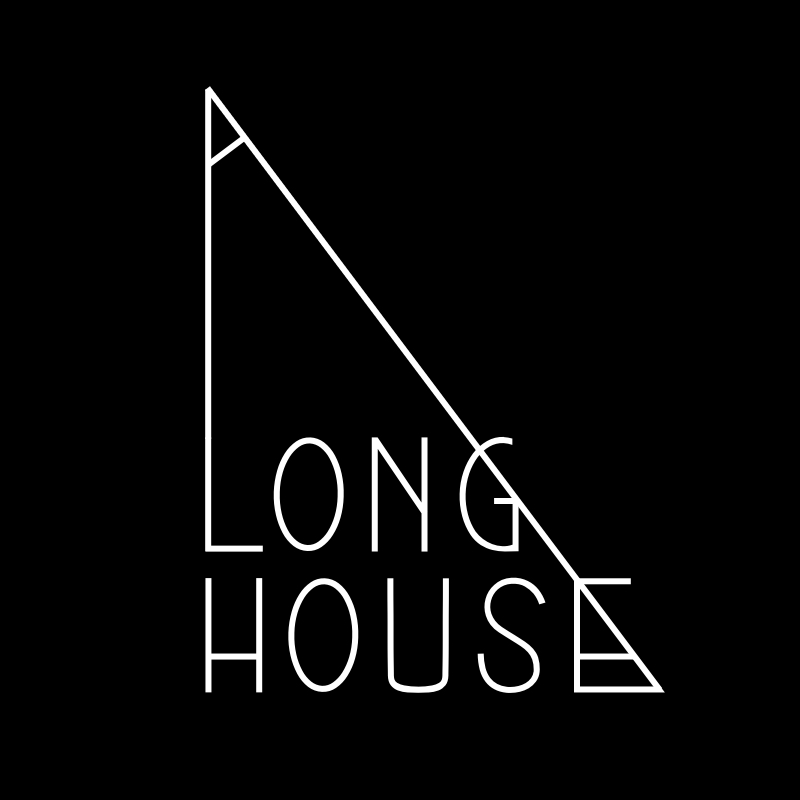In 2021, we announced Origins, our first issue at A Long House, so named to speak to our origins as Africans and black diasporic peoples, our origins beyond colonialism and slavery or other eurocentric frameworks, in which—by naming ourselves for ourselves—we inhabit the sources of our collective being. Now some two years later, we contemplate again this question of our collective being. It is a reflection that continues on from Origins, an inquiry into the lineages that carry on from our past to our future, from our forebears to our progeny. The word “lineage” offers a fruitful image—a chain—and indeed several useful words: linkage, cord, bonds, ties, kinship, relation. Out of all these comes the theme of our second issue: Connections.
It is a word that holds all those senses together. It is an idea that houses all our considerations and offers room for expansion and productive departures. We seek how we are connected to our past and forge the connections to our futures. But our consideration cannot revolve around temporality alone. We recognise that our connections stretch across geography and language and touch on the things that bind us together. We know also that our connections are forged between bodies as between persons, and, like memory, stay alive in non-linear time.
The idea of connection goes down to the roots of what makes us human; hence, it is no surprise that it is at the heart of that beautiful concept Ubuntu: “A person is a person because of other persons.” Every story, every work of thought and imagination really is an illumination of how one person—or thing—is connected to something else: a person to their kin and to their God, to their homeland, and to their place in the world. A relation between one thing and another, a vision, say, and a way of being that stems from that vision. So strong and so central is connection that its disruption has birthed some of the greatest elegies in literature—from Sophocles to Achebe, from Shakespeare to Awoonor.
It may be said that we become most aware of the bonds we share when those bonds are threatened; we realize how powerful they had been all along when they become strained. A woman misses her father most acutely when he is no longer around. A man in exile yearns with nostalgic ache for his home country. A marriage, like a manacle, chafes when love grows cold. All of these are fertile nodes of inquiry. But what of our untroubled bonds, what of the relations in which we are at ease? Here Achebe offers us an Igbo proverb by which we advance: “Where one thing stands, another will stand beside it.” There is something against which ease rests, something it stands beside. Literature must illuminate those as well.
Across Africa and the world, people and groups are riven along political lines. Fierce fighting has sprung up as a result. Political and economic instability has displaced many, fracturing their connections to one another and their home. How does literature, how does art, respond to this?
Let us deploy language and imagination to look at the varied ways we are connected. Our intimate and cherished bonds require our homage. Our strained relationships bear examining. Our world falling apart in places and standing together in others should alert us to our relation to it—what in it we find we cling to, what we find we must let go of, what connections we no longer know what to make of. Let us create work that speaks to these, and we just may have made a space where, in the ways that matter most, we recognise each other.
What We’re Looking For
We’re looking for work that engages with the theme of connections in creative and meaningful ways. Each entry should be honest, engaging, and serious, without being stiff or tedious. We want work that is intelligent, clear, and—if you can manage it—beautiful.
What to Submit
We accept fiction, nonfiction, poetry, photography, art, illustration, audio clips, soundscapes, film, and any work that fuses, or otherwise moves creatively across these genres.
Guidelines
For poetry, upload 3 to 6 poems in a single document (length: not more than 120 lines for a single poem).
For fiction, upload a story (length: 1000 to 6000 words).
For nonfiction (which includes memoirs, travel essays, lyrical or meditative pieces, critical discourse, philosophy, writing on art, film, photography, dance, performance, or theatre), upload an essay or work of prose (length: 1000 to 6000 words).
For art, photography, mixed media, and illustrations, upload between 5 to 10 images. Please provide a descriptive paragraph about the work in the cover letter. The paragraph should include the title, size, medium, and date.
For audio clips, soundscapes, and film, please share a Google Drive link to the file with alh@alonghouse.com. Video files should be no larger than 1GB and in MP4 format preferably. Audio files should be no larger than 100Mb and in M4A, MP3, or MP4 formats. Please include a document in the folder containing a synopsis of the work or other explanatory notes.
All textual work should be submitted as Word documents in Times New Roman, Georgia, or Cambria 12-point font. Where necessary, you can send an accompanying PDF to show us how your work is spaced or arranged on the page, but please include a Word version for easy editing.
Prose submissions should be double-spaced. Poetry may require special space considerations depending on form, so there are no restrictions.
Submit only work that has not been previously published. Simultaneous submissions are fine but please withdraw your work via Submittable as soon as it is accepted elsewhere.
We pay $40 for accepted poetry, and $50 for accepted prose and non-textual work.
Submissions are open from September 1 – December 31, 2023.
We are open to answering questions on submissions and helping out where necessary via email. Reach us at alh@alonghouse.com.
Click here to submit your work.


